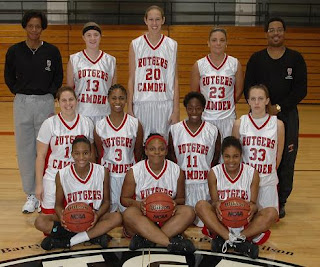
I know that what Mr. Imus is being accused of is not something that he is the first to be guilty of in the mainstream media. Racially disparaging remarks and made and condoned everyday especially by members’ minority groups in the name of light heartedness and humor. The practice is deplorable; there is no doubt about that in my mind.
However one would be naive to push to the side the fact that the context in which this particular racist attack takes place is quite singular. Mr. Imus is not a comedian at some laugh-factory in Atlanta. He is not some rap artist pushing records on the street corner. Mr. Imus wields a kind of power only a very select few in this society have. His level of influence with the pool of people from which this country chooses its leadership is way beyond that of any of the 'usual suspects' that I have mentioned. When you call a group of girls attending Rutgers university "nappy-headed hos" and then have a prospective US presidential candidate come to your defense in the name of “believing in forgiveness”, you know you are at a level of influence that few ever reach.
With great power comes great responsibility. Mr. Imus must be held to a higher standard. Not because he is white, but because of the amount of influence that we have accorded to him. When he uses the term ‘nappy-headed’ and gets away with a slap on the wrist, it sends a message not only to the boy on the street corner, but to the men on capital hill that you can make disgusting, crass and racially offensive statements and escape the consequences as long as your sorry about it in the aftermath.
What is being advocated for is not the creation of policy; it is the enforcement of policy, Policies that were put in place to counter precisely this sort of incident.


